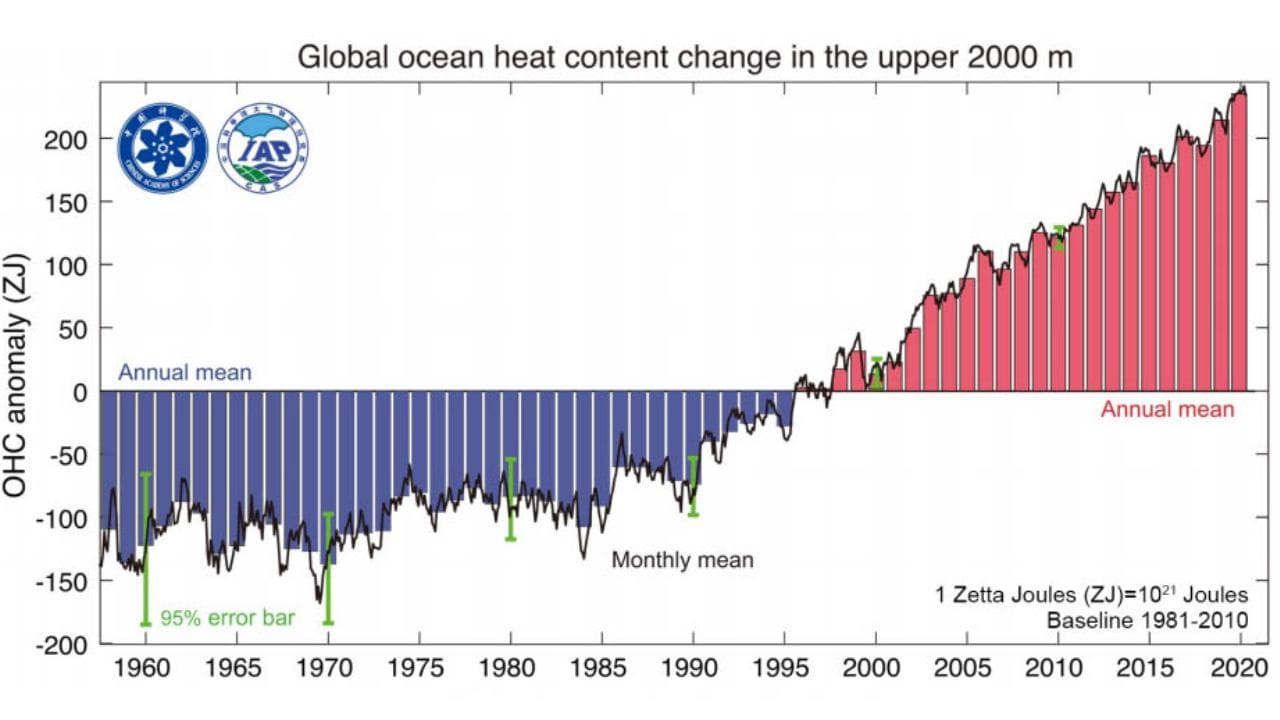FP TrendingJan 15, 2021 19:53:22 IST
A new study, conducted by researchers from the National Center for Atmospheric Research (NCAR) has found that the temperatures in the upper 2,000 metres of the ocean hit a record high in 2020. The study further illustrated that just over 90 percent of the additional heat due to human-caused climate change is absorbed by the ocean. According to study authors, Ocean heat is a valuable indicator of climate change because it does not fluctuate as much as temperatures at the Earth’s surface, which can vary in response to weather and natural climate variations.

The Southern Ocean is our planet’s primary storage of heat and carbon. Image Credit: Craig Stevens/Author provided
Study authors opine that the increase in ocean temperatures can cause a number of societal impacts as well. They add that the uneven vertical heating of the ocean also causes it to become more stratified, which in turn inhibits ocean mixing and the distribution of dissolved oxygen and nutrients, impacting marine ecosystems and fisheries.
Speaking about it, co-author of the study Kevin Trenberth revealed that ocean heat has exacerbated many significant climate-related events in recent history and has also contributed to the record number of billion-dollar disasters in the US in 2020.

The heat content in the upper 2,000 meters of the ocean from 1958 through 2020. The graph shows the departure from a baseline (the average temperature between 1981-2010), with red bars showing more heat than the baseline and blue bars showing less. Image: Advances in Atmospheric Science
For the study, the team, led by Lijing Cheng, of the Chinese Academy of Sciences, used two different ocean heat datasets. One was from the Institute of Atmospheric Physics, and one from the National Centers for Environmental Information, which is part of the US National Oceanic and Atmospheric Administration.
The study authors found that the two datasets yielded slightly different values for the globally integrated ocean heat in 2020 and even found that 2020 was the warmest year on record.
Co-author John Fasullo added that the study showed them definitively that the ocean is warming and has been for decades.
The results of the study have been published in the journal Advances in Atmospheric Science.
Post a Comment